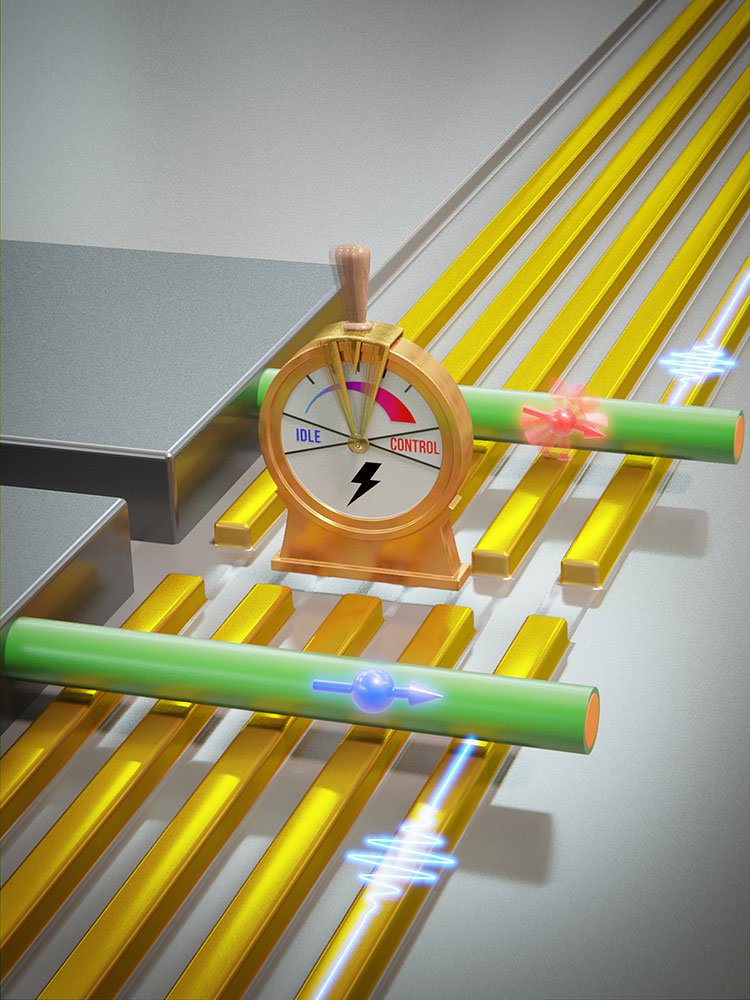
Researchers from the University of Basel and TU Eindhoven have produced a new type of qubit that can be switched from a stable idle mode to a fast calculation mode.
The challenge for quantum computing is therefore to keep the sensitive qubits stable over a prolonged period of time, while at the same time finding ways to perform rapid quantum operations.
The new type of qubit has a stable but slow state that is suitable for storing quantum information. However, the researchers were also able to switch the qubit into a much faster but less stable manipulation mode by applying an electrical voltage. In this state, the qubits can be used to process information quickly.
In their experiment, the researchers created the qubits in the form of “hole spins.” These are formed when an electron is deliberately removed from a semiconductor, and the resulting hole has a spin that can adopt two states, up and down — analogous to the values 0 and 1 in classical bits. In the new type of qubit, these spins can be selectively coupled — via a photon, for example — to other spins by tuning their resonant frequencies.
This capability is vital, since the construction of a powerful quantum computer requires the ability to selectively control and interconnect many individual qubits. Scalability is particularly necessary to reduce the error rate in quantum calculations.
The researchers were also able to use the electrical switch to manipulate the spin qubits at record speed since their spin can be coherently flipped from up to down in as little as a nanosecond.
For their experiments, the researchers used a semiconductor nanowire made of silicon and germanium. Produced at TU Eindhoven, the wire has a tiny diameter of about 20 nanometers. As the qubit is therefore also extremely small, it should in principle be possible to incorporate millions or even billions of these qubits onto a chip. (University of Basel)
The study has been reported in the journal Nature Nanotechnology.
